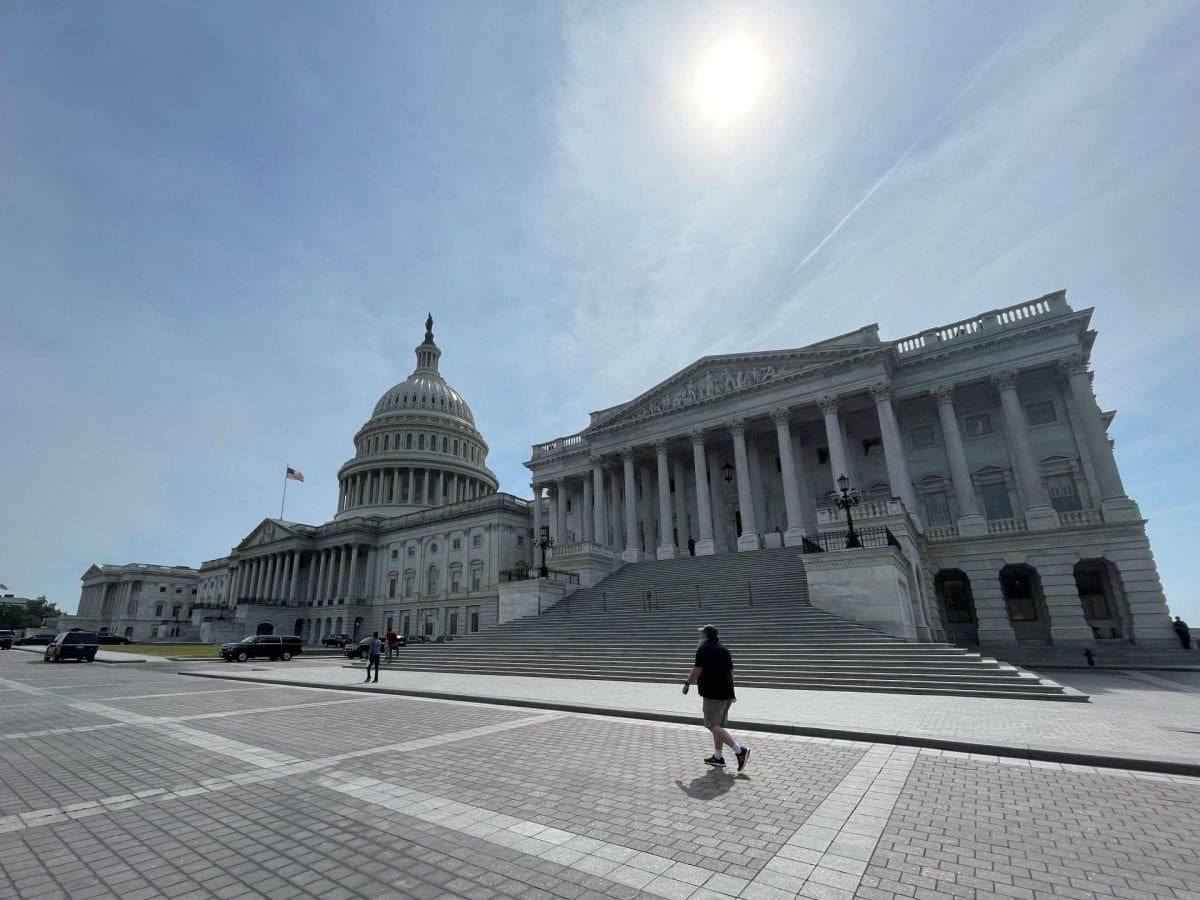
After several years of interacting with the international community remotely, it has been great to be able to connect in person again. This year the (fully vaccinated!) team have been making the most of the opportunity to travel and learn from colleagues in other countries. Here’s a quick summary of where we have been and what we got up to while we were there.
Forum of Australian Chief Science Advisors (FACS) Melbourne
Juliet’s counterpart in Australia, Cathy Foley, convenes a group of chief scientists from each state a few times each year. New Zealand is grateful to be included in this group. Pre-COVID, we had been gathering twice a year in person and engaging with researchers and officials in different states. Over the last three years, we have connected by Zoom, but with a steady turnover of Chief Scientists in different states, it was great to get back to in-person meetings again.
Juliet visited Melbourne in April, catching up on the Australian research prioritisation process, and enjoyed visiting some of the new developments at Monash University. The synchrotron, in which NZ is a partner, is expanding its capability significantly. Just next door Moderna is building a factory to manufacture RNA vaccines, providing new opportunities for fruitful trans-Tasman collaboration. We were to host a FACS meeting in New Zealand, which would have been the first, but was scuppered by COVID; we hope to get back on the schedule soon!

FACS tour of Monash

Cathy Foley at the synchrotron
Study tour of Finland and Estonia
As part of our project aimed at improving the resilience of our young people to polluted information, Dr Susie Meade and Colson Verdonk from our team visited Finland and Estonia, recognized leaders in teaching information and media literacy, in May. One of the challenges of building on international best practice is that not everything that works overseas necessarily translates to our context. So we were lucky that Prof Melinda Webber, an expert in Māori education and student success who is part of the writing team for our report, joined us on the trip to help translate what we learned there into useful tips for Aotearoa.
It was a packed programme of visits to schools, libraries, research groups, NGOs and Government officials. A few particular highlights were KAVI, the National Audiovisual Institute in Finland, which gave great insight into the importance of a national body coordinating media literacy and Verke. This organisation promotes digital youth work, which went through a lesson plan about AI and polluted information. These insights and others gathered from the trip are hugely valuable to add depth to our evidence synthesis, which will be delivered soon. The snow was an added bonus!
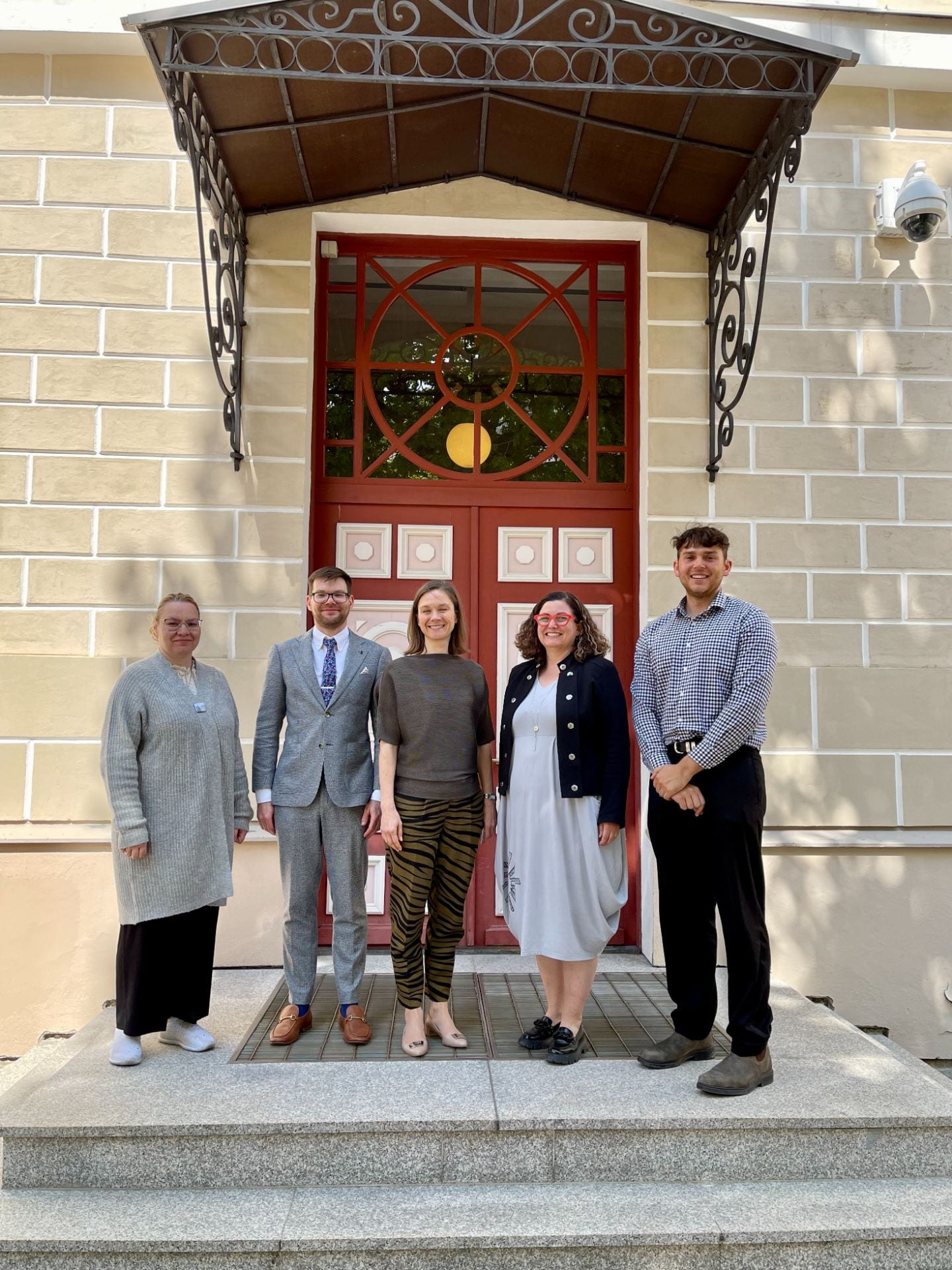
Colson and Susie with officials from the Estonian Ministry of Education and Strategic Communications team
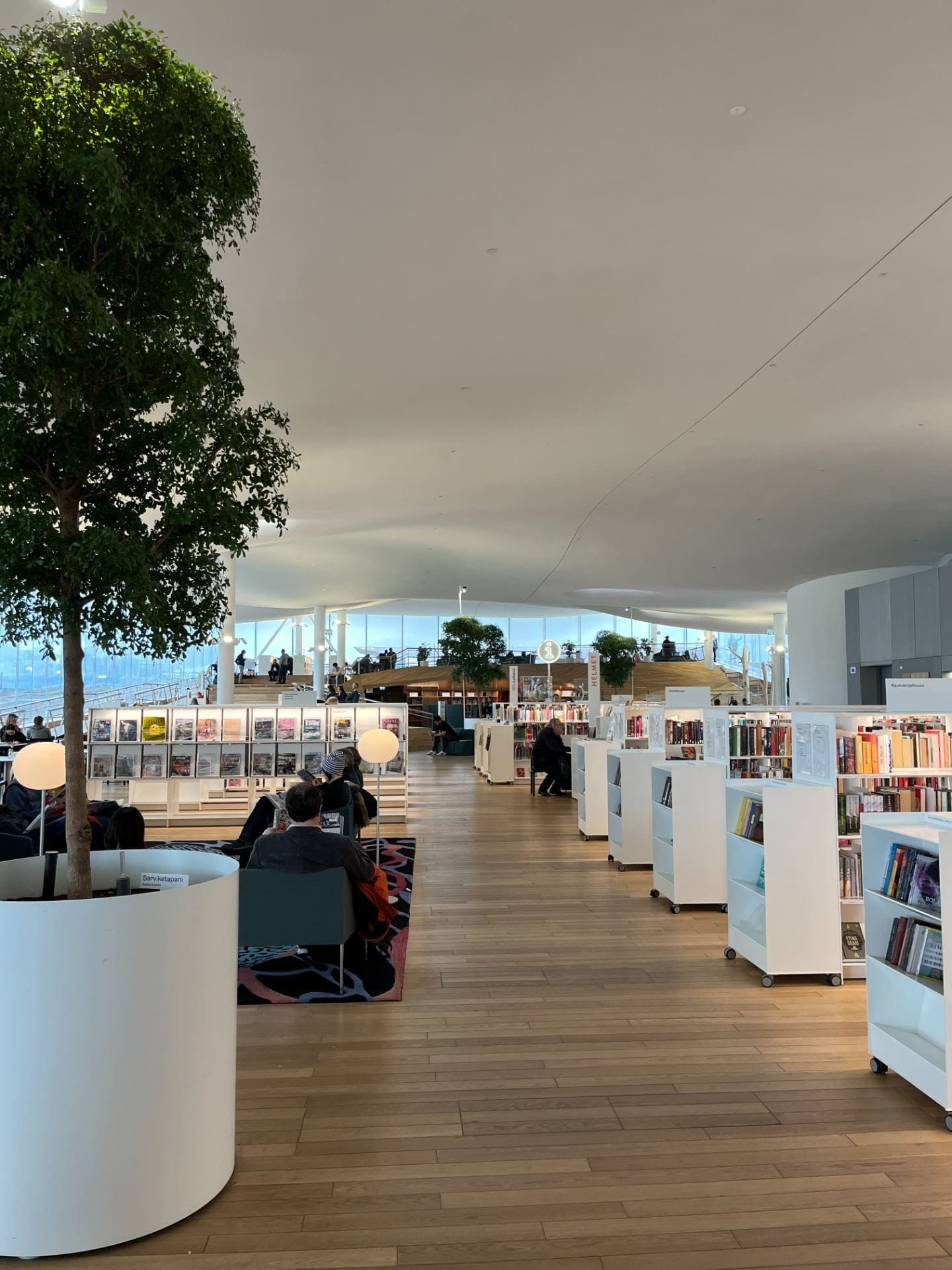
Oodi library in Helsinki, libraries are heavily used spaces that a wide and large cross section of the public utilise
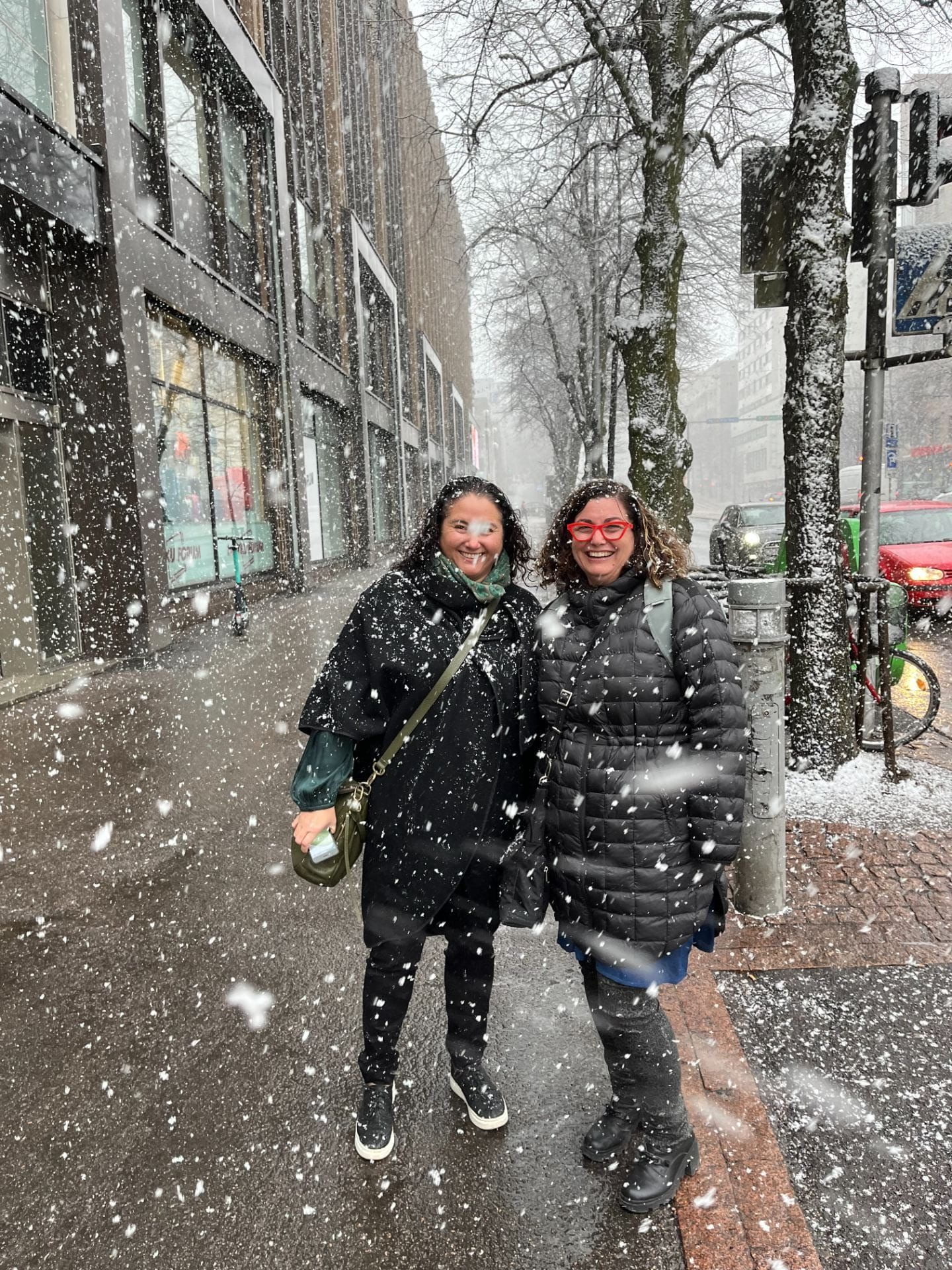
Melinda and Susie in the snow after a meeting with library workers in Lahti
Truth, Trust and Hope in Washington
Juliet last visited Washington in 2019 and was delighted to reconnect with old colleagues and meet new ones at the National Science Foundation (NSF) and the White House Office of Science and Technology Policy (OSTP). It was very useful to understand the NSF international funding priorities and how to maximise opportunities for collaboration with NZ, and understand the emerging research to policy issues, especially in Artificial Intelligence (AI), to inform our new project in this area.

Juliet and Dr. Arati Prabhakar director of the White House Office of Science and Technology Policy
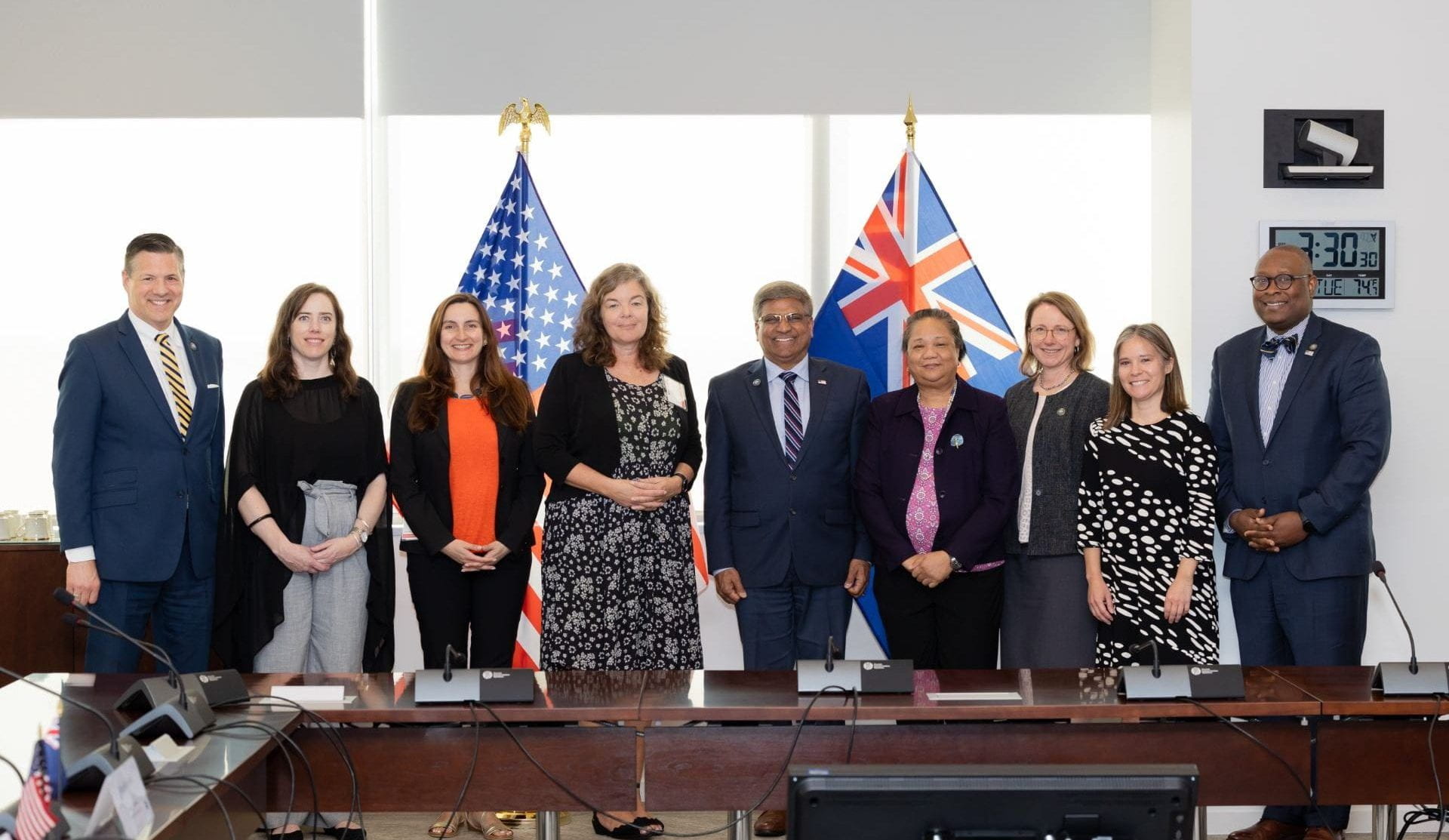
Juliet meeting with Director Dr. Sethuraman Panchanathan (centre right) and the National Science Foundation team
The timing of the trip coincided with a Nobel Summit on Truth, Trust and Hope, which was held at the National Academy of Sciences and attracted a stellar crowd of speakers with insights into tackling the crisis of our polluted information landscapes, which is accelerating with developments in AI. Despite the scale of the challenge, the summit maintained a hopeful outlook, bringing together a diverse range of perspectives to strengthen our toolbox in building trust in science and creating algorithms that promote positive change. A particular highlight was the keynote from Maria Ressa.
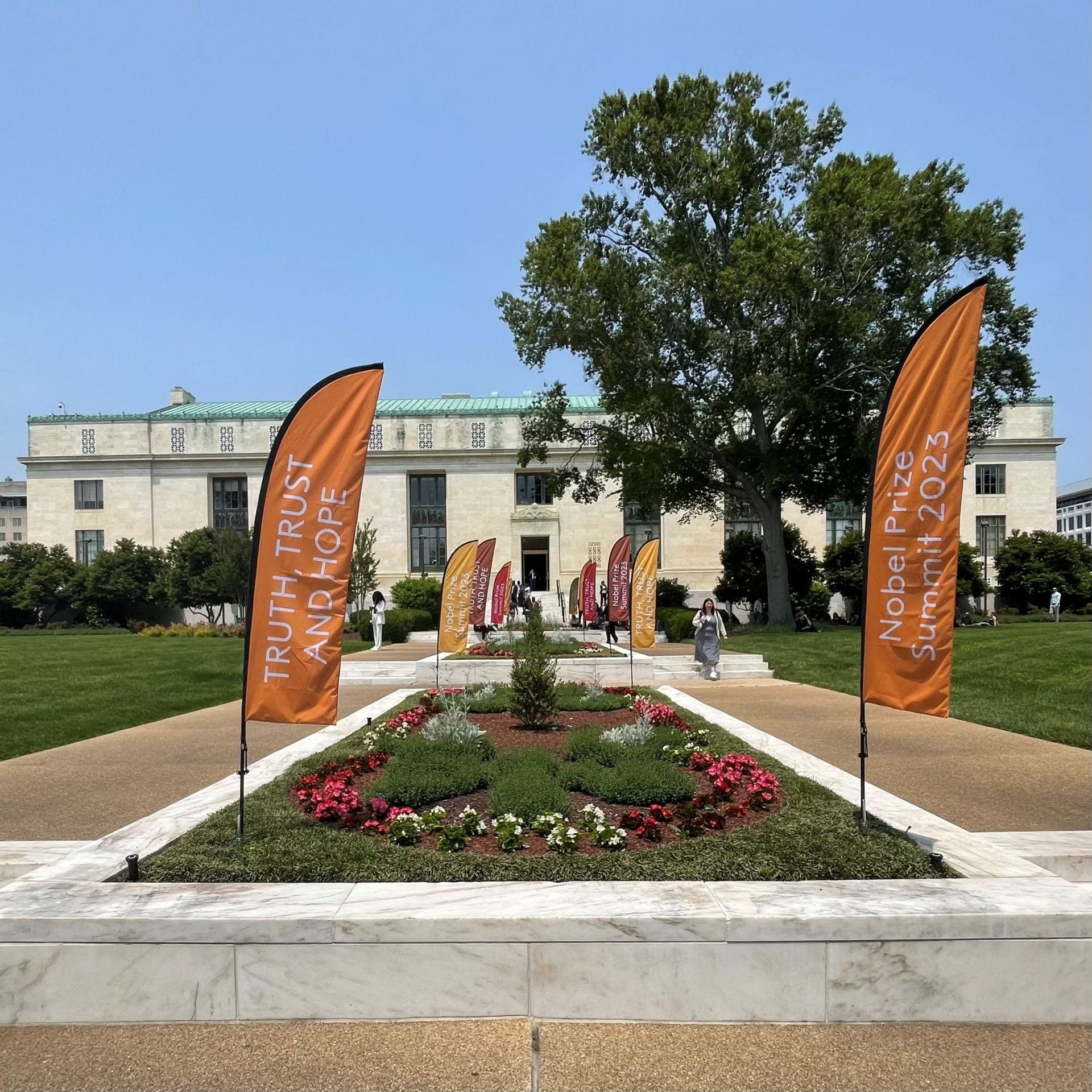
The Nobel Prize Summit from outside the conference
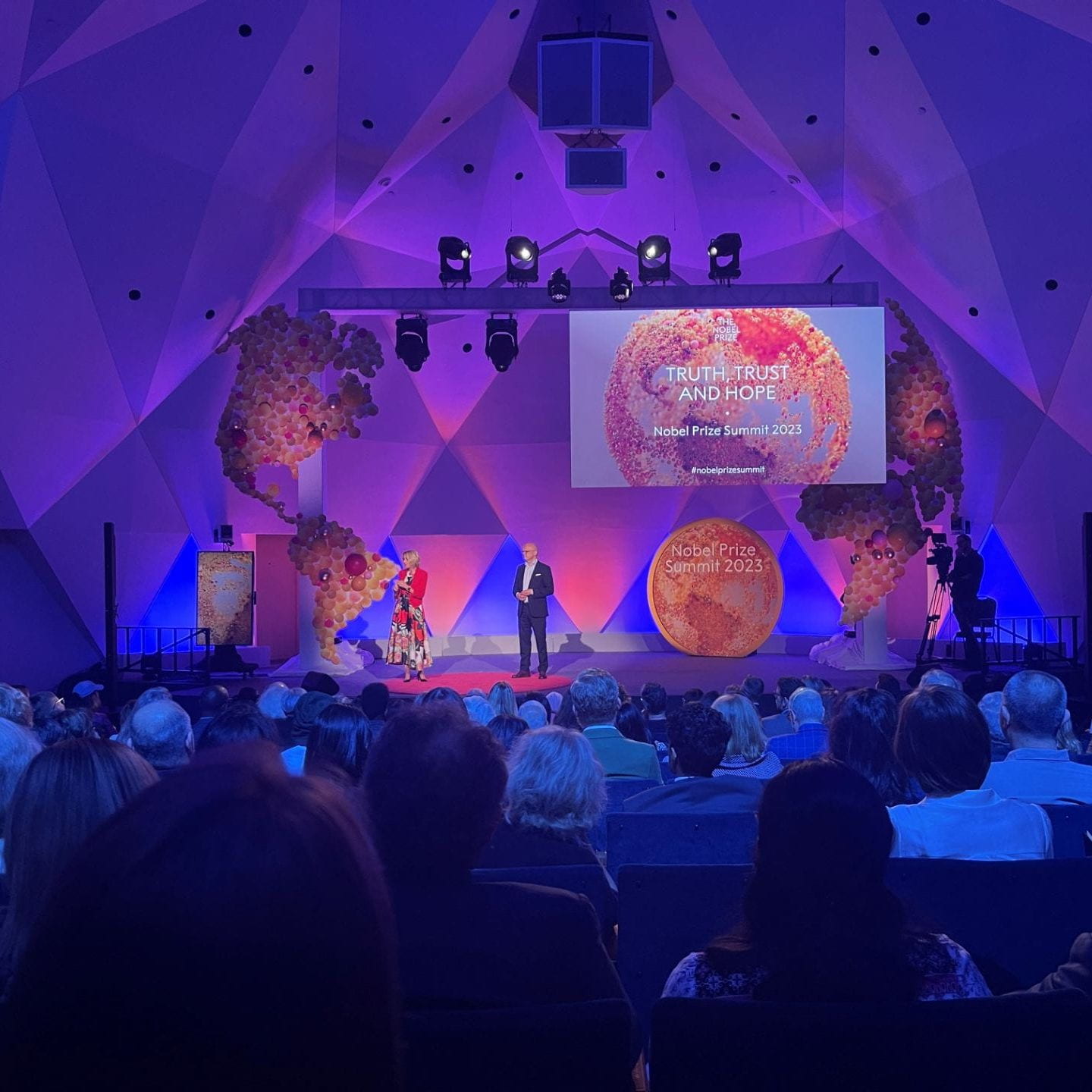
Nobel Prize Summit: Truth, Trust and Hope from inside the auditorium
Fighting marine plastic pollution in Indonesia
Next week Juliet is joining an MFAT delegation to the ASEAN-Indo-Pacific Workshop on Marine Plastics Debris at the Regional Capacity Center for Clean Seas, Indonesia. She, along with two of the expert panel members, will talk about the Rethinking Plastics project and how it might contribute to international solutions across the Pacific. This is a fantastic opportunity to elevate the work to an international level, in the context of an international problem that is felt especially acutely in Indonesia.
